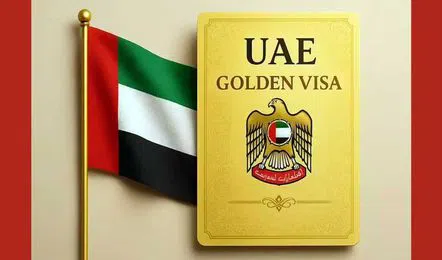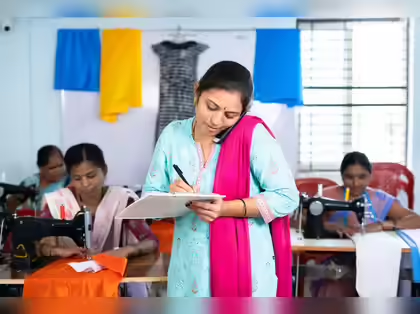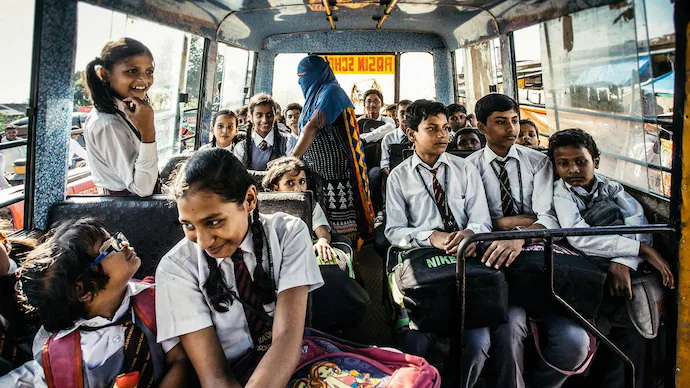- Courses
- GS Full Course 1 Year
- GS Full Course 2 Year
- GS Full Course 3 Year
- GS Full Course Till Selection
- Answer Alpha: Mains 2025 Mentorship
- MEP (Mains Enrichment Programme) Data, Facts
- Essay Target – 150+ Marks
- Online Program
- GS Recorded Course
- Polity
- Geography
- Economy
- Ancient, Medieval and Art & Culture AMAC
- Modern India, Post Independence & World History
- Environment
- Governance
- Science & Technology
- International Relations and Internal Security
- Disaster Management
- Ethics
- NCERT Current Affairs
- Indian Society and Social Issue
- NCERT- Science and Technology
- NCERT - Geography
- NCERT - Ancient History
- NCERT- World History
- NCERT Modern History
- NCERT Medieval History
- CSAT
- 5 LAYERED ARJUNA Mentorship
- Public Administration Optional
- ABOUT US
- OUR TOPPERS
- TEST SERIES
- FREE STUDY MATERIAL
- VIDEOS
- CONTACT US
Reforming LARRDIS for an Informed Legislature
Reforming LARRDIS for an Informed Legislature
07-07-2025

Why in the News?
- India’s Parliament needs strong research support to make good laws.
- Library and Reference, Research, Documentation and Information Service (LARRDIS), the Parliament's research and library service, is supposed to help MPs.
- But it is not used much and does not work like research services in other countries.
- There is a growing need to make LARRDIS better so MPs can get useful and deep information.
What are the Key Highlights?
- Library and Reference, Research, Documentation and Information Service (LARRDIS):
- About:
- i. LARRDIS provides research and information to Members of Parliament (MPs).
- ii. It responds only when MPs ask for help (reactive system).
- iii. It has digitised old records, Lok Sabha debates, and committee reports.
- iv. In 2023, LARRDIS started sharing articles written by MPs.
- v. MPs need to send questions to LARRDIS either online or in person.
- vi. The number of requests from MPs has grown a lot from 150 in 1950 to over 8,000 in 2019.
- Limitations:
- i. LARRDIS works alone and has no partnerships with universities or think tanks.
- ii. It does not have enough research staff to give deep policy advice.
- About:
- Press Legislative Research (PRS):
- Private groups like PRS Legislative Research help MPs with research.
- The LAMP Fellowship supports around 40–50 MPs at a time with trained assistants.
What is the Other Nations Initiative for Parliamentary Research?
- The International Federation of Library Associations (IFLA) and the Inter-Parliamentary Union (IPU) recommend that parliamentary research should be neutral, confidential, and maintain long-term knowledge.
- The European Parliamentary Research Service (EPRS) works with think tanks and universities and publishes reports online for everyone.
- EPRS also studies global trends, reviews impact assessments, and calculates the cost of not taking action at the EU level.
- Argentina’s research office (OCAL) helps MPs by studying science and technology issues, working with experts, and running training sessions.
- France, Mexico, and other countries have similar offices that support lawmakers with scientific and policy research.
- Countries like Benin and Colombia involve scholars in co-authoring technical reports for Parliament.
- Egypt places specialists and research fellows in parliamentary committees to improve research quality.
What are the Significances?
- Improves the Quality of Law-Making: MPs will be able to make better and more informed decisions with accurate, well-researched data and analysis.
- Strengthens Parliamentary Debates: With access to timely and in-depth research, discussions in Parliament will become more meaningful and fact-based.
- Reduces Dependence on Party Notes and Consultants: Neutral and professional research support from LARRDIS will reduce MPs’ reliance on politically-biased talking points or external consultants.
- Bridges the Information Gap Between Parliament and Government: Strong research support ensures that MPs are not at a disadvantage when questioning or reviewing the government’s policies.
- Supports Democratic Accountability: Well-informed MPs can hold the government more effectively accountable, which strengthens democratic checks and balances.
- Builds Public Trust in Parliament: When citizens see MPs speaking with knowledge and depth, it increases their confidence in the institution of Parliament.
- Promotes Evidence-Based Policy Making: Research-backed inputs lead to laws and policies that are grounded in facts, data, and long-term impacts, not just opinions or emotions.
What are the Challenges and Way Forward?
Challenges |
Way Forward |
1. LARRDIS is reactive, not proactive. |
Start giving information in advance by tracking important issues and upcoming bills. |
2. MPs have to request information manually or online. |
Create an easy, automatic system for MPs to get regular updates and research notes. |
3. No partnerships with think tanks or universities. |
Build strong partnerships with top Indian and global institutions. |
4. Limited in-house research staff. |
Hire more researchers from academic and professional backgrounds. |
5. Works in isolation and lacks expert inputs. |
Involve consultants, scholars, and domain experts in its functioning. |
6. Focuses only on stored records, not on future research. |
Study global trends, impact of laws, and cost of no action like EPRS does in the European Union. |
7. Role is not clearly defined for users and confidentiality. |
Make clear rules on who can access services, response time, and privacy protocols. |
8. Private research support like LAMP covers only a few MPs. |
Expand fellowships or support programs to reach more MPs. |
Conclusion
India is a large and diverse country. Making good laws requires clear and reliable knowledge. Parliament must be supported by a strong research service that helps MPs understand complex topics. A modern, well-planned, and inclusive LARRDIS will make sure that every law is backed by solid facts and deep thinking. This will help India become a more informed and accountable democracy.
|
Ensure IAS Mains Question Q. “Institutional research support is vital for effective parliamentary functioning in a complex democracy like India.” In this context, critically examine the role and limitations of LARRDIS. Suggest measures to make it more responsive, inclusive, and globally aligned. (250 words) |
Ensure IAS Prelim MCQQ. Consider the following statements regarding LARRDIS (Library and Reference, Research, Documentation and Information Service)
How many of the above statements is/are correct?
Answer: a. Only one Statement 1 is incorrect: LARRDIS is reactive, not proactive. Statement 2 is correct: It has digitised records, debates, and reports. Statement 3 is incorrect: LARRDIS currently works in isolation, without such partnerships. |




